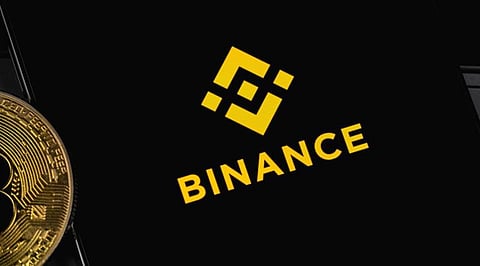

Last week, Binance prohibited more than 600 user accounts related to the usage of unlicensed trading bots, which supports the idea of fair trading and transparency. Meanwhile, the Financial Services Agency (FSA) of Japan and New York City are advancing new digital finance reforms that may transform the world of crypto. These complementary advances point to a common purpose: stronger, more open systems of the next generation of digital invention.
On October 19, Binance affirmed that it permanently banned more than 600 accounts that participated in unauthorized bot trading via Binance Alpha. The exchange has stated that this will be in line with its mission of making the game fair and guarding against an automated, manipulated user.
The official division, Binance Wallet, that deals with enforcement, claimed that users used automation tools like bot farms to give them unfair trading advantages. As a reaction, Binance has reinforced verification and compliance audits throughout its ecosystem.
In order to encourage involvement of the community, Binance introduced a reward system that enables its users to get up to 50% of the profits obtained through the offending accounts on which they report a confirmed violation. The initiative promotes vigilance and collaboration among the users to ensure the fairness of the market.
The Binance Coin (BNB) was moderately volatile in the aftermath of the announcement, showing a slight downfall on October 19 and then settling. To avoid airdrop fraud alleged by fake identities or bots, the company also disclosed the new security measures in airdrops in the future.
Japan’s FSA is reviewing policy reforms that could allow domestic banks to hold Bitcoin and other non-backed crypto assets as part of their investment portfolios. This represents a major shift from the 2020 restrictions that prevented such holdings due to volatility concerns.
The proposed reforms also include registering banks as cryptocurrency exchange operators. If approved, financial institutions could directly offer trading services to clients within regulated frameworks. This would bring digital assets under stronger oversight while expanding investor access.
The FSA expects these measures to enhance public trust while maintaining safety through strict capital exposure limits and compliance monitoring. Japan’s crypto participation has surged, with over 12 million accounts recorded by February 2025, reflecting a maturing market ready for regulated integration.
Analysts suggest this dual push from banks and regulators could strengthen Japan’s financial stability while diversifying revenue streams amid a national debt ratio of 240% of GDP.
Across the Pacific, independent mayoral candidate Andrew Cuomo has unveiled plans to create a Chief Innovation Officer (CIO) position in New York City. The role would lead blockchain, AI, and biotech development, coordinating investment and technology adoption across city agencies.
The initiative aims to transform New York into a global innovation hub by merging digital infrastructure with economic growth. A proposed Innovation Council would advise on crypto adoption, workforce training, and regulatory efficiency.
Current Mayor Eric Adams has already established the Office of Digital Assets and Blockchain Technology, signaling bipartisan momentum toward modernization. Cuomo’s proposal seeks to extend this effort, bridging traditional finance with new technology.
Binance’s enforcement action against 600 bot-operated accounts marks a firm stance on transparency and user protection. Simultaneously, Japan’s FSA is reviewing reforms to allow banks to hold Bitcoin, while New York City’s Andrew Cuomo proposes a Chief Innovation Officer to lead blockchain, AI, and biotech growth.
Also Read: New North Korean Malware ‘OtterCookie’ Targets Ethereum and Binance Smart Chain Users
